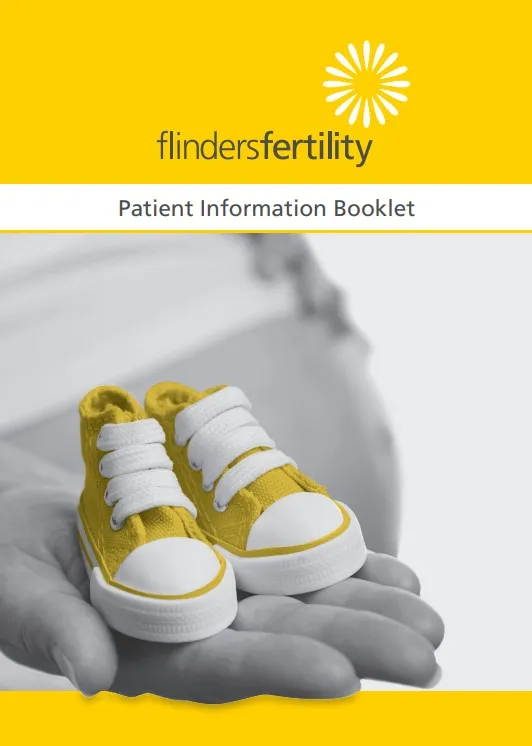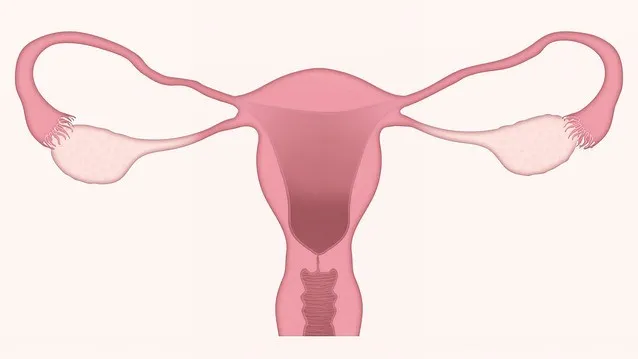
Our first appointment with the specialist at Flinders Fertility was on 14th March 2019. Their admin officer emailed me to confirm the booking and she also sent me a copy of the Patient Information Booklet as well as the New Patient Form that John and I need to fill out. I suppose we were expected to read the booklet prior to the scheduled visit.
I was counting the days down from when I received the email to the first consultation date. We had to wait for 24 days, but that's all right. I made myself preoccupied with work and studies to stop me from thinking too much about it. I was just too excited.
Meanwhile, on the 14th of February 2019, John and I celebrated our 9th year anniversary of being together. Our wedding anniversary is in October. So every year, we celebrate two anniversaries. February is just always very special because it was when we first met, fell in love with each other, and started our relationship, and got engaged in two weeks after our first meeting. Some people might say it was like a whirlwind romance. I was mesmerised by him and I fell deeply in love with him.
We got married in October 2012, but we didn't really start trying to get pregnant until two years later. I was 29 when we got married and we sort of agreed with each other that we would start trying when I reached 30-31 years old. Although we really did not use any form of contraception or birth control pills. We just did the normal thing... we were just not trying at all... if you get the gist.

I printed out the booklet for John and it was sitting on our coffee table for 23 days. John is not really a reader, so he just put the reading off all that time and only managed to read through it the night before our first visit. I don't force him into doing something that he doesn't really like doing, so I just waited for him to take initiative to read about what we were getting ourselves in for.
In all fairness to him, he did not skim the pages. He read all of the information thoroughly and I was quite proud of him to do that. He can read car manuals back to back because that's his interest, but anything other than that, I don't expect too much from him. He asked me if I had read the booklet. I said, "Yes, I did. But I don't mind reading it again." It's good to refresh my memory of what I had already absorbed.
Basically, the booklet was designed to help us understand some of the treatments that are available and the risks involved whichever treatment we would choose. It also tackled the common factors associated with infertility. From what we read, we did have a problem with infertility, and we just didn't know what that was. So far I had the results of the tests I took, and based on what my G.P. said, everything seemed normal, but the fertility doctor needs to confirm that. At this stage, John had not been tested yet. Although back in 2015, he had himself tested, and the results indicated that he didn't have a problem producing more children. (He already had 5 children from his first marriage.)
When we actually started trying to get pregnant back when I was around 31 years old and weren't too successful, obviously, I started to think if one of us or both of us had a problem. In 2015, I tried to get some answers from a visiting OB-Gyne at our local hospital. She had me undergo this Hysterosalpingogram (HSG) Test to check if I had blocked fallopian tubes.
HSG Test was a procedure that I underwent where they used an X-ray to look at my fallopian tubes and uterus. It was scheduled after my period finished, ideally on the 10th-14th day of my cycle. They had me lay down on a table under an X-ray fluoroscope. Then the gynaecologist inserted a speculum (probably the same thing they use to perform pap smear or cervical screening test), into my vagina to keep it open and to clean my cervix. Then, she inserted a thin tube into my cervix to fill my uterus with a liquid containing iodine or what they call the "dye".
It was an awful experience that I was actually screaming "Ouch!!! It hurts". It was like period cramps but more excruciatingly painful. I say that because I have low pain threshold so I guess if I had to use the pain tolerance scale of 1-10, 10 being really painful, I wouldn't be a reliable subject.
I had to endure that pain for about 5-7 minutes. The doctor then removed the speculum and took images with the fluoroscope X-ray. The "dye" showed the outline of my uterus and my fallopian tubes and how the fluid moved through them. After a few images were shot, the doctor then finally removed the thin tube out of my vagina. The doctor said everything seemed normal. The official result would be forwarded to my Ob-Gyne. I went to see the OB-Gyne a week later and she said that I didn't have blocked fallopian tubes and there were no cysts as well. She was quite happy with the result.
The doctor then gave me a referral to see a fertility specialist in Repromed. It was the only clinic she recommended me to go to like I had no other option. I didn't pursue it; I thought John and I would just have to try the natural way. Anyway, I was only 31 at that time, and we both found out that there was nothing wrong with me and him as well. I thought, "We still have plenty of time. It will come. It will happen."
According to the booklet, some causes of infertility are:
- Ovulation disorders, such as polycystic ovary syndrome (PCOS)
- Tubal factors - if fallopian tubes are blocked (which can be detected through the HSG test)
- Endometriosis
- Adenomyosis
- Uterine abnormalities
- General diseases, such as obesity, thyroid or endocrine problems
- Male factor - like absence or reduced sperm count, abnormal motility and morphology of the sperm
- Unexplained infertility
Having not seen the fertility specialist yet, I had already made up my mind that my inability to conceive must fall on the category of unexplained infertility.
Unexplained infertility is when a couple have been trying to conceive for at least 12 months with no success and all conventional tests have come back as normal. Unexplained infertility accounts for approximately 10% of all cases of infertility. (Source: Flinders Fertility Patient Information Booklet)
The male factor was yet to be concluded, as John had not taken the test as of that time. Who knows if there was a dramatic change with his sperm count, motility and morphology from 2015 to 2019. At that stage, we weren't sure if the specialist would be happy with John's results from 2015 or he might need to do take the test again.
Now, that doesn't really answer my question: What is wrong with me? All the tests that John and I had taken so far came back normal - no problem at all. But why is it that it was difficult for me to conceive? But for now, I thought then, I'd accept that my infertility could not be explained. We would have to wait and see what the fertility specialist would say about us.
Related Posts:
My IVF Pregnancy Journey Part 1
My IVF Pregnancy Journey Part 2

